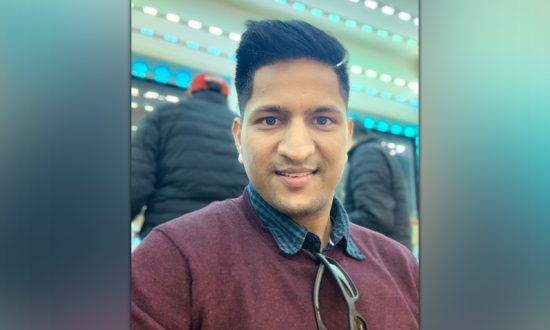A middle-class child with big dreams coming from a very small village of Rajasthan, who went against odds, testing his will & passion to solve a big problem in Education & Career, shaping up individuals and hence societal & global development. Ashwini is an IITian who worked extremely hard towards his passion for enabling the world to have Quality Education. He is working days & nights to ensure that aspirants get admitted to their dream universities to have a brighter career. This was possible, impacting 70000+ students & professionals through ForeignAdmits.com.
Mentoring is a protected relationship that allows learning and experimentation, developing potential skills amongst the students by measuring results in terms of acquired abilities rather than just academic success. Personal and professional development is an important element of mentoring relationships and hence mentors develop a relationship with the students that is a perfect amalgamation of personal and professional characteristics.
A mentor can be a friend, a teacher, and a guide, all at the same time. This is why correct mentorship in higher education plays an integral role in building a bright future for the students who are in their crucial stage of deciding a career or exploring their passion. The Indian higher education system officially promises to promote the intellectual and personal growth of students, through mentorship and guidance from faculties and student counselors.
But are the teachers/faculty trained well to provide the right mentorship? And more importantly, are they trained to understand student psychology and work accordingly to help students gain confidence, direction, and guidance to choose a correct path?
Correct mentorship for higher education: Role of proper training
With the setting up of counselling centers in all major higher education institutions in the country, it is essential that the counselors are trained well to provide the correct kind of guidance. Often faculties/counselors don’t know what they are doing – they are responsible for various verticals such as education, student guidance, mentorship, supervision, and much more. They do it all, but with no proper training or support.
Hence a proper training schedule must be developed for the teachers who play the role of mentors in higher education institutions. Over 6 months to a year the teachers must be trained on the various aspects of student counseling such as the psychological, behavioral, and intellectual.
Additionally, the HEIs in India must emphasize over the mandate for ‘access to mentorship’ for all students. As per the government guidelines in the NEP 2020, all HEIs must have counseling centers to help students in accessing support when needed. Also, mentorship through counseling must be given to all students pursuing higher education for a more focused youth in the country.
How does correct mentorship help students in higher education
Mentoring can address the issues of career development, networking, professional development, and personal identity traits amongst the students. Mentors can focus on career development by guiding developing a focused approach and key analytical skills. To add to these mentors can play an instrumental role in helping students understand the norms and protocols that exist within academia and the outside corporate world. This helps students in achieving good socialization skills through professional development.
A good mentor helps the students in acquiring the following skills-
(a) the students are knowledgeable about the culture and expectations within their institution
(b) they grow to become well-respected members of the institution and are viewed as outstanding performers
(c) they are supportive and accessible to the other learners and hence grow to be helpful individuals
(d) they are more diversified in their approach towards life and career
(e) they develop good problem-solving skills
In the current digital world, everything is fast evolving and so is the mentor-student relationship. In the post-Covid era, the teacher-student relationship has now taken a hybrid structure. Students today connect with their teacher/mentor through both offline and online mediums. This is where mentorship has become even more crucial for students. How?
Correct mentorship helps through the following ways-
Career counseling: It helps in avoiding costly career mistakes. Often students opt for a career choice that turns out to be only a waste of money for them. The inability to recognize one’s passion leads to such mistakes which are a loss of both time and money. Hence, career counseling helps the students in choosing the right path at the right time.
Academic counseling: In the current world the influx of information is highly diversified. Students have access to social media and the internet which is both a blessing and a curse. There is a lot of unorganized and unverified information floating around on the internet. But with proper guidance and monitoring, helps the students in accessing proper information. Additionally, mentors help by sharing practical knowledge which is not available on the internet. Personal life experiences and training add to one’s academic growth.
Psychological counseling: By talking to different types of mentors the students can make informed decisions. Mentors have access to a lot of hidden information/connections which helps them source the correct information and psyche of the students. This helps them to unlock new opportunities for the students by helping them gain insight into their passion.
Mentorship is guided energy that can shape a student’s future, helping him/her to achieve greater heights. Trained mentors can unlock the true potential of the students and work as catalysts for their growth.


